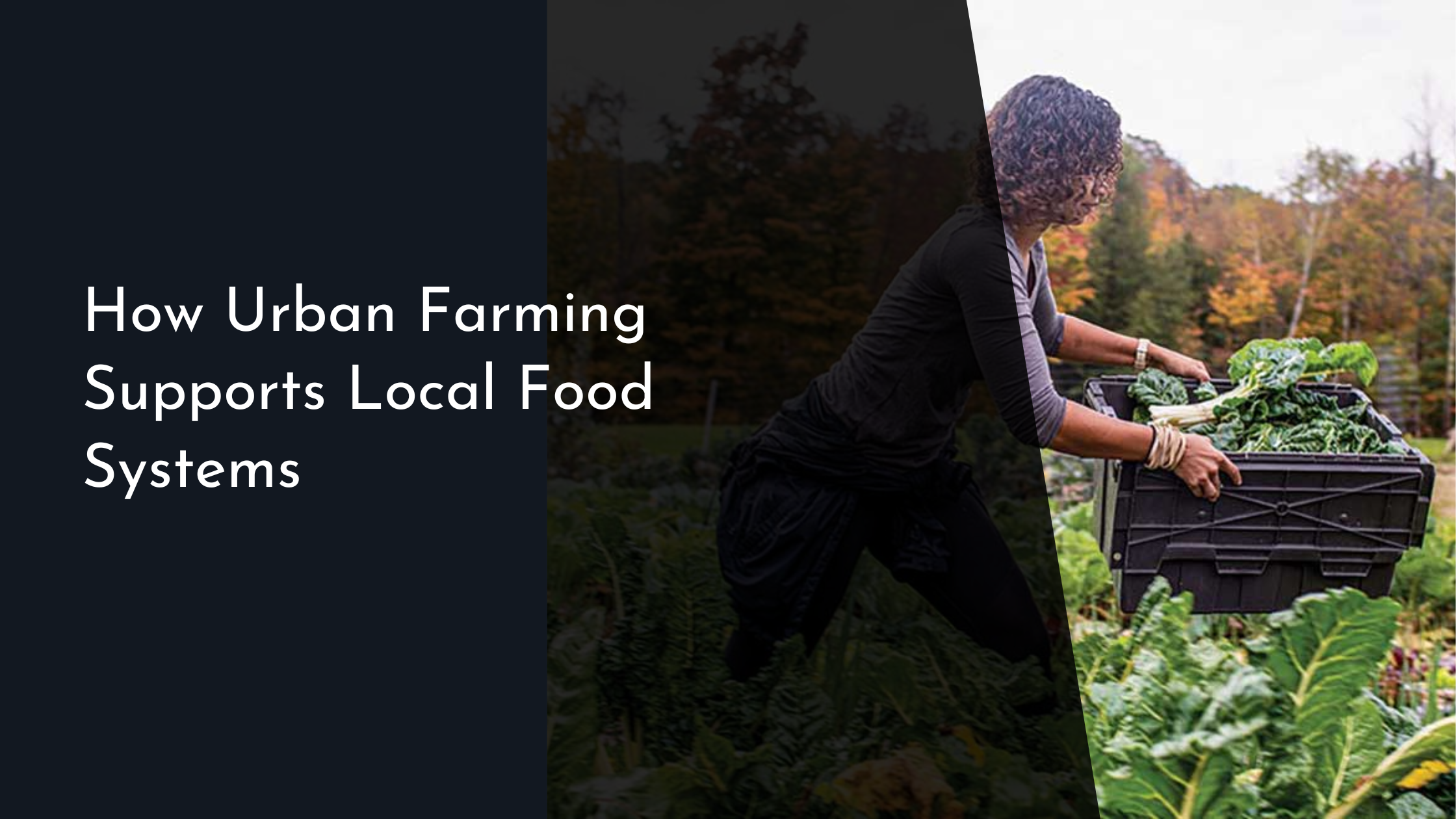How Urban Farming Supports Local Food Systems
Urban farming is steadily transforming city landscapes across the globe and reshaping local food systems. As urban populations continue to rise, the demand for sustainable and efficient food production methods has become increasingly important. Urban farming, with its myriad benefits and innovative practices, offers a promising pathway toward achieving a more sustainable and secure food future for our communities.
Urban Farming: A Sustainable Solution
Urban farming is a sustainable solution that addresses the growing concerns of food scarcity and environmental degradation. By incorporating agricultural activities into urban settings, it minimizes the need for long-distance transportation, thus reducing carbon emissions associated with food distribution. This practice also promotes the efficient use of resources by utilizing vacant lots, rooftops, and even vertical spaces to grow food, making it an environmentally friendly option for urban dwellers.
Moreover, urban farming practices often emphasize organic and regenerative methods, focusing on soil health and biodiversity. This not only enhances the nutritional quality of the produce but also contributes to a healthier urban ecosystem. By supporting natural pollinators and reducing the use of synthetic fertilizers and pesticides, urban farming helps in maintaining and restoring ecological balance, contributing to the overall sustainability of our food systems.
Boosting Community Food Security
Community food security is significantly bolstered by urban farming initiatives, as they provide a steady supply of fresh, locally-grown produce. This is particularly crucial in mitigating the effects of food deserts—urban areas where access to fresh food is limited. By establishing communal gardens and urban farms, residents gain access to nutritious food options, improving overall health outcomes and reducing dependency on processed and unhealthy alternatives.
Urban farms also empower communities by fostering social cohesion and promoting food sovereignty. When residents participate in the cultivation of their own food, they not only gain valuable agricultural skills but also strengthen community bonds. This collective effort enhances the resilience of communities, allowing them to take control over their food sources and reduce vulnerability to global supply chain disruptions.
Innovative Techniques in Urban Agriculture
Urban agriculture is continually evolving, incorporating innovative techniques to maximize yield and efficiency in limited spaces. One such technique is vertical farming, which uses stacked layers to grow crops in controlled environments. This method minimizes land use while optimizing resources like water and light, making it highly effective in urban areas where space is at a premium.
Hydroponics and aquaponics are other groundbreaking approaches that have gained traction in urban farming. Hydroponics enables plants to grow in nutrient-rich water, eliminating the need for soil, while aquaponics combines fish farming with hydroponics, creating a symbiotic environment where fish waste provides nutrients for the plants. These systems offer sustainable solutions by using water more efficiently and reducing the need for chemical fertilizers.
Building a Resilient Local Food Network
Urban farming is instrumental in building a resilient local food network by connecting producers and consumers within the community. It fosters local economies by supporting small-scale farmers and entrepreneurs who supply fresh produce to local markets, restaurants, and households. This localized food system reduces dependency on global supply chains, enhancing food security and stability.
Additionally, urban farming offers educational opportunities that raise awareness about sustainable food practices and the importance of local food networks. Workshops, farm tours, and community events centered around urban agriculture engage and educate the public, cultivating a culture of sustainability and resilience. This collective awareness strengthens the local food network, ensuring its continued growth and vitality.
As cities continue to expand, the importance of integrating sustainable agricultural practices into urban environments becomes increasingly apparent. Urban farming not only supports local food systems by enhancing food security, sustainability, and community resilience, but it also offers innovative approaches that can be adapted to various urban settings worldwide. By embracing urban farming, communities can foster a healthier, more sustainable future for generations to come.

